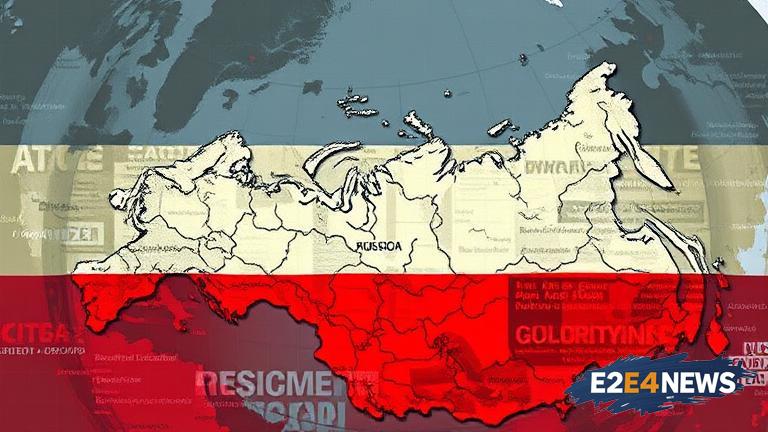Russia’s internet censorship has been a growing concern in recent years, with the government implementing various measures to block and disrupt online content. According to a report by Human Rights Watch, the Russian authorities have been increasingly restricting access to information and freedom of expression online. The report highlights the use of internet blocking, disruptions, and isolation as a means to control the flow of information and suppress dissenting voices. This has resulted in a significant decline in internet freedom, with many websites, social media platforms, and online services being blocked or restricted. The Russian government has also introduced laws and regulations that require internet service providers to store user data and provide it to the authorities upon request. This has raised concerns about surveillance and the potential for abuse of power. The report also notes that the Russian government has been using its internet censorship powers to target opposition groups, activists, and independent media outlets. Many of these groups have seen their websites and social media accounts blocked or restricted, making it difficult for them to reach their audiences and disseminate information. The internet censorship in Russia has also had a significant impact on the country’s economy, with many businesses and entrepreneurs relying on the internet to operate and access global markets. The restrictions have also affected the education sector, with many students and researchers unable to access online resources and information. The report calls on the Russian government to repeal its internet censorship laws and respect the right to freedom of expression and access to information. It also urges the international community to take action to protect global digital freedom and promote human rights online. The issue of internet censorship is not unique to Russia, with many countries around the world implementing similar measures to control the flow of information. However, the Russian government’s actions have been particularly egregious, with the country ranking near the bottom of global internet freedom rankings. The report highlights the need for greater transparency and accountability in internet governance, as well as the importance of protecting human rights online. It also notes that the international community has a role to play in promoting global digital freedom and supporting efforts to combat internet censorship. The Russian government’s actions have also had a significant impact on the country’s relationships with other nations, with many countries expressing concern about the restrictions on internet freedom. The report concludes that the Russian government’s internet censorship policies are a threat not only to the country’s own citizens but also to the global digital community. The international community must take action to protect global digital freedom and promote human rights online. The report’s findings are based on extensive research and interviews with activists, journalists, and ordinary citizens. It provides a comprehensive overview of the current state of internet censorship in Russia and highlights the need for urgent action to protect global digital freedom. The report’s recommendations include the repeal of internet censorship laws, the establishment of an independent regulatory body to oversee internet governance, and the provision of support to groups and individuals affected by internet censorship. The report also calls on the international community to take a stronger stance against internet censorship and to promote human rights online. Overall, the report provides a detailed and comprehensive analysis of the issue of internet censorship in Russia and highlights the need for urgent action to protect global digital freedom.
